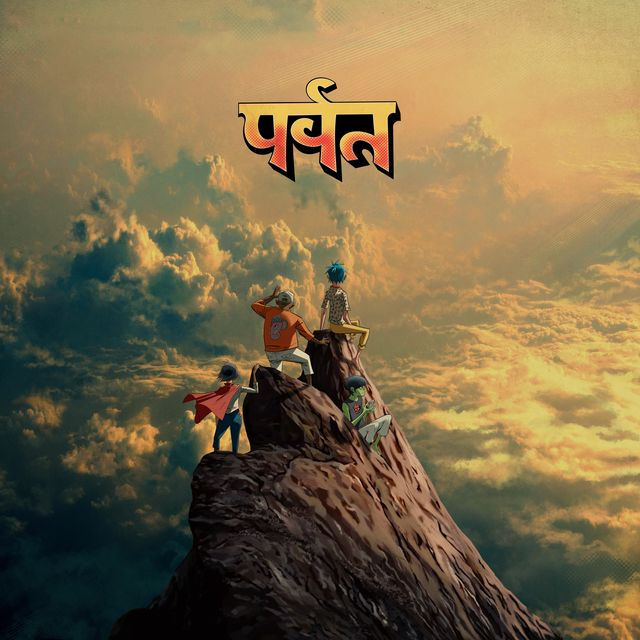The Turnaround - Muddy Waters
- Rev. Zach Chandler, Contributor
- Nov 20, 2018
- 3 min read

This is The Turnaround with Rev. Zach Chandler, where, every week, we’ll be breaking down a different aspect of the blues for a deeper understanding of the music, culture, and people that are the blues. For the next several weeks, we’ll be examining some of the most influential bluesmen of the last century to try to understand where the blues comes from. As an art form centered around expression, the personalities around it are part of what makes this music so special.
Last week, we paid tribute with one of the Three Kings, Albert King.
This week, we’re going back to that same old place, Sweet Home Chicago. We’ll start this segment of Windy City bluesmen with the man, the myth, the legend: Muddy Waters.
Here’s what we know: McKinley Morganfield was born on either April 4, 1913 in Issaquena County, Mississippi or

1915 in Rolling Fork, Mississippi, with most records (what we have, anyway) leaning toward the former. He was raised on the Stovall Plantation by his maternal grandmother, Della Grant, who gave him the nickname of “Muddy Waters” as a boy because he loved to play in the nearby Deer Creek. His earliest musical origins were singing the the Baptist church and at 17 years old, he bought his first guitar, a Stella, for $2.50.
In 1941, musicologist Alan Lomax came to the Stovall Plantation and recorded several local musicians, Muddy included, and again in 1942. Hearing himself recorded on vinyl, he was inspired to try his hand making a living as a professional musician. In 1943, he moved to Chicago and soon began opening for Big Bill Broonzy, an early urban bluesman. In 1944, he went electric and formed his own band. Through the late ’40s Muddy Waters and his group had a series of hits recorded by what would eventually become Chess Records, including “I Can’t Be Satisfied”, “I Feel Like Going Home”, and “Rollin’ Stone”.
By 1953, the group he was recording with was a legendary powerhouse consisting of: Little Walter Jacobs on harp, Jimmy Rogers on guitar, Elga Edmonds on drums, Otis Spann on piano, and Willie Dixon on bass. Through the 1950’s, Muddy Waters dominated the Chicago blues scene, along with Little Walter Jacobs, his former harmonica player, and Howlin’ Wolf, with whom he continued a long friendly rivalry. In 1958, he went across the pond and toured England, which was generally unaware of the electrification of the blues, only having been exposed to old-guard acoustic acts like Big Bill Broonzy and Brownie McGhee. This change was like putting a finger in a light socket for the English music scene and groups like The Rolling Stones, Cream, and Fleetwood Mac were a direct result of this trip.
In the late 1960’s, things got… weird. A series of divisive (to put it nicely), psychedelic-oriented were put out by Chess Records in an attempt to attract listeners from the rock and roll genre. Little Walter, Bo Diddley, and Howlin’ Wolf weren’t excluded from this trend of questionable psychedelic blues pushed by Chess, either. It was as a strange time for the blues as it was for many institutions. By the end of 1969, by the grace of God, things went back to normal for our boy, Muddy. Through the ‘70s, Muddy’s life was no less eventful, touring and recording, even winning Grammys. Eric Clapton was even the best man and one of his weddings in 1979. In 1983, all this came to an abrupt end when he died in his sleep due to complications from cancer. In 1987, Muddy was inducted into the Rock and Roll Hall of Fame.
It’s hard to imagine the music world today without Muddy. Six Grammy-winning albums and a Lifetime Achievement Award, four of the Rock and Roll Hall of Fame’s “500 Songs That Shaped Rock and Roll”, he even got a USPS stamp in 1994. Muddy’s legacy of influence includes basically the entirety of British blues-rock acts from the ‘60s and ‘70s, Hendrix, Canned Heat, The Allman Brothers, Bob Dylan, AC/DC, Gary Clark Jr, The White Stripes... there’s no end. Muddy’s tunes are sex in a musical format — raw, dirty, sweaty, rhythmic, passionate sex, his gritty baritone voice calling out, moaning, and hollering, the electric guitar and harp wailing pure emotion, the rhythm section all the while chugging along like a freight train. He took the soul of the Deep South with him to Chicago and poured it out on stage. In the words of B.B. King, "it's going to be years and years before most people realize how greatly he contributed to American music".
In honor of, in my opinion, one of Muddy Water’s coolest songs, I’ll suggest Moët & Chandon Imperial Champagne to pair. It goes down a lot more smoothly than dirty Mississippi creek water. We’ll let the reefer stay optional for now.




Comments